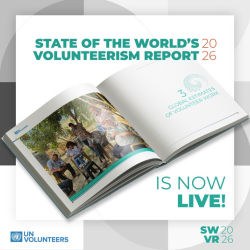-
Study
-
Quick Links
- Open Days & Events
- Real-World Learning
- Unlock Your Potential
- Tuition Fees, Funding & Scholarships
- Real World Learning
-
Undergraduate
- Application Guides
- UCAS Exhibitions
- Extended Degrees
- School & College Outreach
- Information for Parents
-
Postgraduate
- Application Guide
- Postgraduate Research Degrees
- Flexible Learning
- Change Direction
- Register your Interest
-
Student Life
- Students' Union
- The Hub - Student Blog
- Accommodation
- Northumbria Sport
- Support for Students
-
Learning Experience
- Real-World Learning
- Research-enriched learning
- Graduate Futures
- The Business Clinic
- Study Abroad
-
-
International
International
Northumbria’s global footprint touches every continent across the world, through our global partnerships across 17 institutions in 10 countries, to our 277,000 strong alumni community and 150 recruitment partners – we prepare our students for the challenges of tomorrow. Discover more about how to join Northumbria’s global family or our partnerships.
View our Global Footprint-
Quick Links
- Course Search
- Undergraduate Study
- Postgraduate Study
- Information for Parents
- London Campus
- Northumbria Pathway
- Cost of Living
- Sign up for Information
-
International Students
- Information for International Students
- Northumbria and your Country
- International Events
- Application Guide
- Entry Requirements and Education Country Agents
- Global Offices
- English Requirements
- English Language Centre
- International student support
- Cost of Living
-
International Fees and Funding
- International Undergraduate Fees
- International Undergraduate Funding
- International Masters Fees
- International Masters Funding
- International Postgraduate Research Fees
- International Postgraduate Research Funding
- Useful Financial Information
-
International Partners
- Agent and Representatives Network
- Global Partnerships
- Global Community
-
International Mobility
- Study Abroad
- Information for Incoming Exchange Students
-
-
Business
Business
The world is changing faster than ever before. The future is there to be won by organisations who find ways to turn today's possibilities into tomorrows competitive edge. In a connected world, collaboration can be the key to success.
More on our Business Services-
Business Quick Links
- Contact Us
- Business Events
- Research and Consultancy
- Education and Training
- Workforce Development Courses
- Join our mailing list
-
Education and Training
- Higher and Degree Apprenticeships
- Continuing Professional Development
- Apprenticeship Fees & Funding
- Apprenticeship FAQs
- How to Develop an Apprentice
- Apprenticeship Vacancies
- Enquire Now
-
Research and Consultancy
- Space
- Energy
- AI and Tech
- CHASE: Centre for Health and Social Equity
- NESST
-
-
Research
Research
Northumbria is a research-rich, business-focused, professional university with a global reputation for academic quality. We conduct ground-breaking research that is responsive to the science & technology, health & well being, economic and social and arts & cultural needs for the communities
Discover more about our Research-
Quick Links
- Research Peaks of Excellence
- Academic Departments
- Research Staff
- Postgraduate Research Studentships
- Research Events
-
Research at Northumbria
- Interdisciplinary Research Themes
- Research Impact
- REF
- Partners and Collaborators
-
Support for Researchers
- Research and Innovation Services Staff
- Researcher Development and Training
- Ethics, Integrity, and Trusted Research
- University Library
- Vice Chancellors Fellows
-
Research Degrees
- Postgraduate Research Overview
- Doctoral Training Partnerships and Centres
- Academic Departments
-
Research Culture
- Research Culture
- Research Culture Action Plan
- Concordats and Commitments
-
-
About Us
-
About Northumbria
- Our Strategy
- Our Staff
- Our Schools
- Place and Partnerships
- Leadership & Governance
- University Services
- Northumbria History
- Contact us
- Online Shop
-
-
Alumni
Alumni
Northumbria University is renowned for the calibre of its business-ready graduates. Our alumni network has over 253,000 graduates based in 178 countries worldwide in a range of sectors, our alumni are making a real impact on the world.
Our Alumni - Work For Us
What will I learn on this module?
You will learn to critically appraise, understand and apply a range of International Financial Reporting Standards (IFRS). The purpose of this module is for you to learn about a select number of standards in detail. This involves looking beyond the technical computational elements of the standard, instead focusing on areas of the standards that require the judgement of a professional accountant.
The following standards are examples of those that will be covered in the module, however, the syllabus is updated each academic year in line with standard development:
• Conceptual Framework
• IAS 38 - Intangible Assets
• IAS 32 / IFRS 9 - Financial Instruments
• IFRS 10 - Consolidated Financial Statements
• IFRS 13 - Fair Value
• IFRS 15 - Revenue from Contracts with Customers
• IFRS 16 - Leases
• IAS 19 - Post-Employment Benefits
In addition to the accounting standards mentioned above you will learn about some of the contemporary issues in financial reporting, these include:
• Corporate Governance and Compliance
• Integrated Reporting (
• Impression Management and Content Analysis
• Artificial Intelligence and Accounting (including current developments such as Blockchain)
• Climate Related Financial Disclosures (and other current reports commissioned by the Regulator)
You will be assessed by means of an examination and a continuous professional development (CPD) event. The examination will consist of a combination of computational, discursive, case study and essay based questions. The CPD event is a simulated workshop where you will be required to present (in a group) on a contemporary topic in financial reporting. This will involve you carrying out research on a topic and being able to find innovative and interesting ways to disseminate that research to your peers during the workshop.
How will I learn on this module?
You will learn through lectures, structured seminars and independent learning. The lectures will, in the case of the accounting standards, cover the critical viewpoints which need to be considered. In the contemporary issues lectures you will cover theory in the area. In both cases this will be followed up with structured seminars, where a range of activities will be designed in order to provide a more in-depth discussion of the topics covered in the lectures.
How will I be supported academically on this module?
You will be supported in a number of ways. The most direct from of support will be through the seminars, where you will engage and interact in debates and discussions around a given topic. In addition, there will be a number of drop-in sessions to support you through the CPD event planning process. This will give you the opportunity to ask questions about your topic and ways to approach the presentation and briefing paper. There will be ongoing support from your module tutor via email and informal discussions. Lectures will be recorded using Panopto and made available on Blackboard. In addition, a range of material will be made available from professional bodies which will support your study of International Financial Reporting Standards.
What will I be expected to read on this module?
All modules at Northumbria include a range of reading materials that students are expected to engage with. Online reading lists (provided after enrolment) give you access to your reading material for your modules. The Library works in partnership with your module tutors to ensure you have access to the material that you need.
What will I be expected to achieve?
Knowledge & Understanding:
• Understand, apply and critically appraise the strengths and weaknesses of contemporary financial reporting practices (MLO1).
Intellectual / Professional skills & abilities:
• Critically assess your Continuous Professional Development by means of a group-delivered professional training event supported by an appropriate briefing paper (MLO2).
• Develop and critically assess your research and presentation skills through delivery to a peer audience (MLO3).
Personal Values Attributes (Global / Cultural awareness, Ethics, Curiosity) (PVA):
• Develop and critique your research skills by investigating particular financial reporting issues and synthesising the material into an evaluative briefing paper (MLO4).
How will I be assessed?
Formative assessment will be provided to you through a range of seminar activities which will enable you to prepare for summative assessment during, and at end of the module. You will be given the opportunity to develop examination skills through example examination questions. Formative assessment will be provided by tutors during sessions, and through guidance notes to seminar activities.
Summative Assessment:
• Three-hour closed-book examination (plus 15 mins reading time) - 50%. Feedback will be provided on the exam script. Some of the learning objectives will be measured through this assessment; they will be in the form of computational, scenario based and long-form essay questions (MLO1).
• Continuous Professional Development event - 50%. Group briefing paper (2000 words) and formal presentation (30 mins). Some learning objectives will be measured by this assessment. Feedback will be provided in written format for both elements (briefing paper construction and presentation) (MLO2, MLO3, MLO4).
Pre-requisite(s)
Level 4 Financial Accounting Module or equivalent
Level 5 Financial Accounting Module or equivalent
Co-requisite(s)
None
Module abstract
This module examines the contemporary issues and controversies in financial reporting, with a focus on the technical and theoretical elements of the International Financial Reporting Standards (IFRS). You’ll learn how financial reporting standards are used and applied in practice, and gain valuable insights into academic research which supports your understanding of higher level financial reporting issues.
The module is split into two distinct areas which complement the assessment structure. The first part is a continuation of the financial reporting work you undertook at level 5. So you’ll cover concepts that give you a deeper understanding of the subjective elements of IFRS – a crucial factor in improving your decision-making skills. The second part introduces theoretical research which will develop your understanding of the contemporary issues the wider world of financial accounting is facing.
Course info
UCAS Code N405
Credits 20
Level of Study Undergraduate
Mode of Study 3 years Full Time or 4 years with a placement (sandwich)/study abroad
School Newcastle Business School
Location City Campus, Northumbria University
City Newcastle
Start September 2026
All information is accurate at the time of sharing.
Full time Courses are primarily delivered via on-campus face to face learning but could include elements of online learning. Most courses run as planned and as promoted on our website and via our marketing materials, but if there are any substantial changes (as determined by the Competition and Markets Authority) to a course or there is the potential that course may be withdrawn, we will notify all affected applicants as soon as possible with advice and guidance regarding their options. It is also important to be aware that optional modules listed on course pages may be subject to change depending on uptake numbers each year.
Contact time is subject to increase or decrease in line with possible restrictions imposed by the government or the University in the interest of maintaining the health and safety and wellbeing of students, staff, and visitors if this is deemed necessary in future.
Useful Links
Find out about our distinctive approach at
www.northumbria.ac.uk/exp
Admissions Terms and Conditions
northumbria.ac.uk/terms
Fees and Funding
northumbria.ac.uk/fees
Admissions Policy
northumbria.ac.uk/adpolicy
Admissions Complaints Policy
northumbria.ac.uk/complaints










